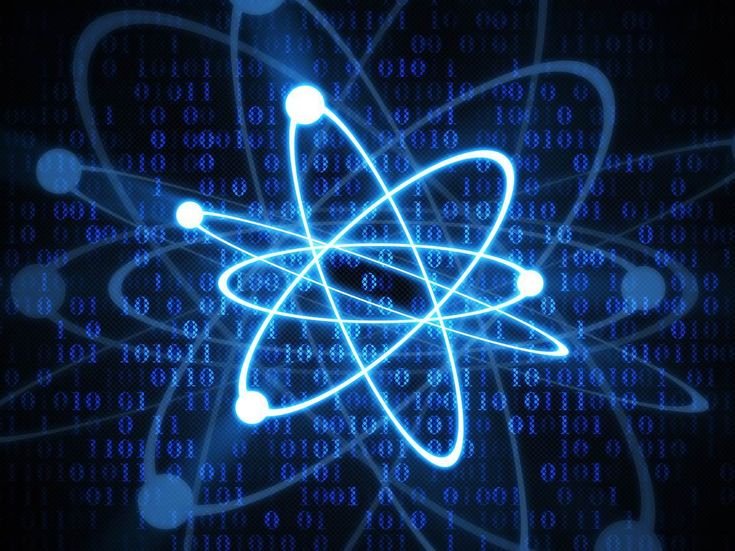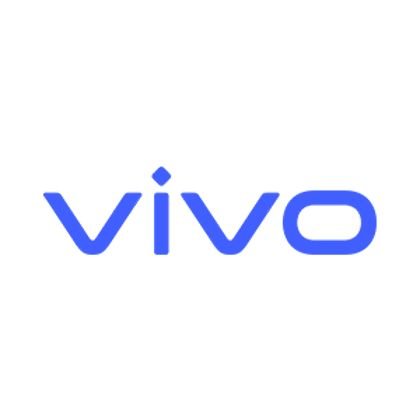
Artificial intelligence (AI) training demands high-performance computing resources due to its intensive computational requirements. From natural language processing to computer vision and deep learning, the effectiveness of AI models heavily depends on the underlying hardware. With advancements in cloud computing technology, organizations and individuals can now access powerful hardware configurations optimized for AI training without the need to invest in expensive infrastructure. In 2024, several cloud computing providers offer state-of-the-art hardware tailored specifically for AI training. This article explores the best cloud computing hardware options for AI training in 2024, focusing on their specifications, unique features, and how they cater to various AI workloads.
1. NVIDIA DGX Cloud
Overview:
NVIDIA DGX Cloud provides a cloud-based version of NVIDIA’s renowned DGX hardware, specifically designed for deep learning and AI training. The platform combines NVIDIA’s latest GPUs with high-performance networking and storage to deliver exceptional AI training performance.
Key Features:
- Powered by NVIDIA A100 and H100 GPUs: Offers the latest NVIDIA A100 and H100 Tensor Core GPUs, which are optimized for AI training, providing up to 20x performance over previous-generation GPUs.
- High-Bandwidth Networking: Equipped with high-bandwidth, low-latency networking to accelerate distributed training.
- Integrated Software Stack: Includes NVIDIA AI software, such as CUDA, cuDNN, TensorRT, and RAPIDS, along with pre-optimized AI frameworks like TensorFlow and PyTorch.
- Scalability: Scales from a single GPU to multi-node, multi-GPU configurations for large-scale training tasks.
Best For:
- Organizations and research institutions that require powerful hardware for large-scale AI training.
- Users who prefer a tightly integrated software and hardware ecosystem for maximum performance.
2. Google Cloud TPUs (Tensor Processing Units)
Overview:
Google Cloud TPUs are custom-designed hardware accelerators specifically built to accelerate machine learning workloads. TPUs are designed to handle the massive parallelism required for deep learning, making them ideal for AI training tasks.
Key Features:
- TPU v4 Pods: The latest generation of TPUs, offering up to 275 teraflops of processing power per chip and capable of scaling to thousands of chips within a TPU Pod.
- Optimized for TensorFlow: While compatible with other frameworks, TPUs are particularly optimized for TensorFlow, Google’s open-source machine learning framework.
- Scalable Infrastructure: Offers scalability from single TPU devices to entire TPU Pods, providing flexibility for various workloads.
- Energy Efficiency: TPUs are designed for high energy efficiency, reducing the cost of running large-scale AI models.
Best For:
- Developers and organizations heavily invested in the TensorFlow ecosystem.
- Projects requiring large-scale deep learning training with a focus on efficiency and scalability.
3. AWS Inferentia and Trainium Chips
Overview:
Amazon Web Services (AWS) provides custom AI chips, Inferentia and Trainium, designed specifically for deep learning workloads. These chips are optimized for both training and inference, providing cost-effective and efficient solutions for AI workloads.
Key Features:
- AWS Trainium: Custom-designed chips for AI training, providing high throughput and lower costs compared to traditional GPUs.
- AWS Inferentia: Designed for AI inference, but also supports training workloads, offering up to 20% lower cost per inference than comparable GPUs.
- Elastic Infrastructure: Offers scalability with Amazon EC2 instances powered by Inferentia and Trainium, along with integration into AWS AI and ML services like SageMaker.
- Integrated AI Tools: Compatible with popular AI frameworks, including TensorFlow, PyTorch, and MXNet, and optimized for AWS ML services.
Best For:
- Businesses looking for cost-effective AI hardware with high performance for both training and inference.
- Organizations leveraging AWS’s extensive suite of cloud services for AI and machine learning.
4. Microsoft Azure NDv4 Series VMs
Overview:
Microsoft Azure’s NDv4 series virtual machines (VMs) are specifically designed for AI training and HPC (High-Performance Computing) workloads. These VMs are powered by NVIDIA A100 GPUs and offer a high-performance computing environment optimized for AI training.
Key Features:
- NVIDIA A100 GPUs: Each VM in the NDv4 series is equipped with up to 8 NVIDIA A100 Tensor Core GPUs, delivering powerful AI training capabilities.
- High-Speed NVLink Interconnect: Utilizes NVIDIA’s NVLink interconnect technology for fast GPU-to-GPU communication, ideal for distributed deep learning.
- Large Memory Capacity: Offers VMs with up to 1.6 TB of system memory and 200 Gbps of networking bandwidth per VM.
- Flexible Scaling: Supports multi-node configurations for large-scale AI training.
Best For:
- Enterprises and researchers requiring high GPU performance for AI training.
- Users who prefer Azure’s cloud ecosystem for AI and HPC workloads.
5. IBM Cloud VPC AI Hardware
Overview:
IBM Cloud Virtual Private Cloud (VPC) offers specialized AI hardware configurations, including NVIDIA V100 and A100 GPUs, optimized for AI and ML workloads. IBM Cloud provides a secure and scalable environment for AI training.
Key Features:
- NVIDIA V100 and A100 GPUs: Access to NVIDIA’s V100 and A100 Tensor Core GPUs for high-performance AI training.
- Secure Environment: Provides a secure, isolated virtual private cloud environment to protect data during AI model training.
- Hybrid Cloud Integration: Seamlessly integrates with on-premises infrastructure, enabling hybrid cloud AI deployments.
- Quantum Computing Integration: Offers compatibility with IBM’s quantum computing services, allowing researchers to explore quantum-enhanced AI.
Best For:
- Organizations looking for a secure, hybrid cloud environment for AI training.
- Users interested in exploring quantum computing integration with AI workloads.
6. Alibaba Cloud AIACC
Overview:
Alibaba Cloud AIACC (AI Acceleration Cloud) provides high-performance AI computing resources optimized for deep learning and AI model training. Alibaba Cloud is known for its robust infrastructure and innovative AI solutions.
Key Features:
- High-Performance GPU Instances: Offers GPU instances powered by NVIDIA Tesla V100 and A100 GPUs for accelerated AI training.
- AIACC Toolkit: A set of optimization tools to accelerate deep learning frameworks, such as TensorFlow, PyTorch, and MXNet, reducing training time by up to 40%.
- Distributed Training Support: Optimized for distributed training, enabling efficient scaling across multiple GPU instances.
- Data Integration: Seamlessly integrates with Alibaba’s big data services for comprehensive AI model training.
Best For:
- Businesses operating in or targeting the Asia-Pacific market, especially China.
- Users looking for a cost-effective AI training solution with advanced optimization tools.
7. Oracle Cloud Infrastructure (OCI) AI Infrastructure
Overview:
Oracle Cloud Infrastructure (OCI) provides specialized AI infrastructure, including NVIDIA A100 GPU instances and bare metal servers, designed to support high-performance AI and ML workloads.
Key Features:
- NVIDIA A100 GPUs: Offers bare metal and virtual machine instances with NVIDIA A100 GPUs, providing flexible, high-performance AI training options.
- Low-Latency Networking: Utilizes RDMA (Remote Direct Memory Access) networking to ensure low latency and high throughput for distributed AI training.
- Optimized Storage Solutions: Provides high-performance storage options, including block and object storage, to handle large datasets efficiently.
- AI and ML Services Integration: Seamlessly integrates with Oracle’s suite of AI and ML services for end-to-end AI model development.
Best For:
- Enterprises looking for high-performance, low-latency AI training infrastructure.
- Organizations using Oracle’s ecosystem for database management and enterprise solutions.
8. Fujitsu AI Testbed
Overview:
Fujitsu AI Testbed is a specialized cloud service that offers access to cutting-edge AI hardware and software for AI training and development. The platform is designed to support research and enterprise AI initiatives.
Key Features:
- Fugaku Supercomputer Access: Provides access to Fugaku, the world’s fastest supercomputer, for advanced AI training and research.
- High-Performance GPUs and CPUs: Offers a combination of NVIDIA GPUs and custom-designed CPUs for optimal AI performance.
- Research Collaboration: Designed to support collaborative research, offering tools and resources for joint AI development projects.
- AI Framework Support: Supports popular AI frameworks and tools, including TensorFlow, PyTorch, Keras, and MXNet.
Best For:
- Research institutions and organizations looking for access to the latest AI hardware.
- Teams involved in collaborative AI projects and advanced research.
Conclusion
In 2024, the demand for high-performance cloud computing hardware for AI training continues to grow. The platforms listed above provide state-of-the-art hardware configurations and cloud environments tailored specifically for AI workloads. From NVIDIA’s DGX Cloud to Google Cloud’s TPUs and AWS’s custom AI chips, there are various options available depending on the specific needs, budget, and preferred ecosystem.
Choosing the right cloud computing hardware for AI training depends on several factors, including the scale of your AI projects, your preferred AI frameworks, and your organization’s overall cloud strategy. By understanding the unique features and benefits of each platform, you can make an informed decision that best meets your AI training needs in 2024.
ALSO READ: Top Free JavaScript Courses in 2024









